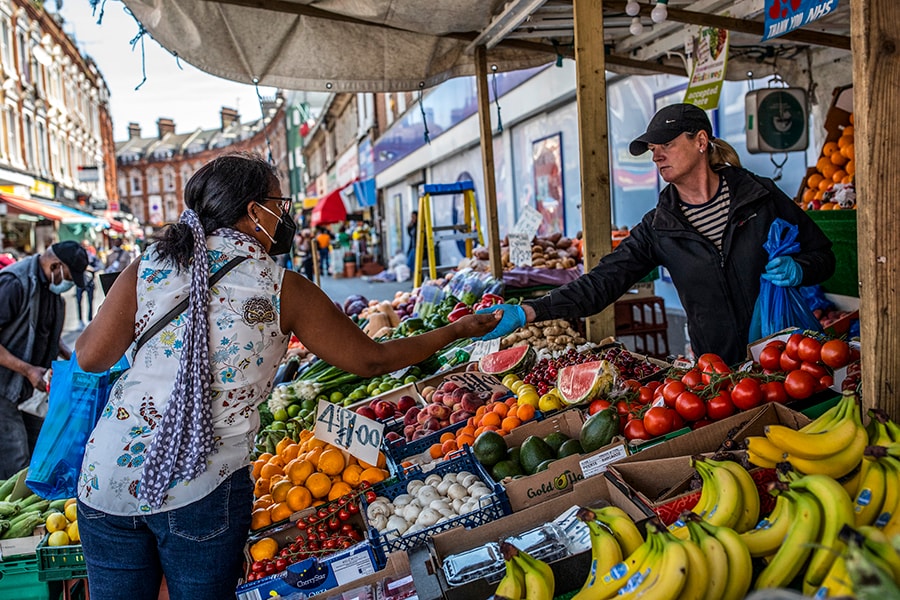
Britain signals intent to revert to the imperial system
The British government said it was taking steps to return to its traditional system of imperial weights and measures, allowing shops and market stalls to sell fruits and vegetables labeled in pounds and ounces alone, rather than in the metric system's grams and kilograms
 A fruit and vegetable stall trades at Brixton market in London. The British government said it would pursue plans to allow shops and market stalls to sell fruits and vegetables labeled solely in imperial units of measurement. (Photo by Dan Kitwood/Getty Images)
A fruit and vegetable stall trades at Brixton market in London. The British government said it would pursue plans to allow shops and market stalls to sell fruits and vegetables labeled solely in imperial units of measurement. (Photo by Dan Kitwood/Getty Images)
The British government said it was taking steps to return to its traditional system of imperial weights and measures, allowing shops and market stalls to sell fruits and vegetables labeled in pounds and ounces alone, rather than in the metric system’s grams and kilograms, a move it hailed as an example of the country’s new post-Brexit freedoms.
The plans, which David Frost, the minister overseeing Brexit, announced Thursday, were cheered by Brexit supporters, many of whom had argued that the switch to the metric system over the decades was a sign of unwelcome European Union interference in daily life in Britain.
While the EU currently requires members to use the metric system alone, it had allowed Britain, when it was a member, to label its produce in imperial units alongside metric units. There were also exceptions for traffic signs and beer.
As part of its exit from the EU, the British government is now reviewing thousands of EU rules that it retained and determining whether they best serve the national interest. Those rules include the EU ban on sales in imperial units, which the British government said it would legislate changes to “in due course.”
Since Britain formally split from the EU on Jan. 1, after nearly 50 years of membership, Prime Minister Boris Johnson has touted his vision of a “Global Britain” that would flourish without being shackled by rules imposed by the 27-member bloc.
©2019 New York Times News Service







